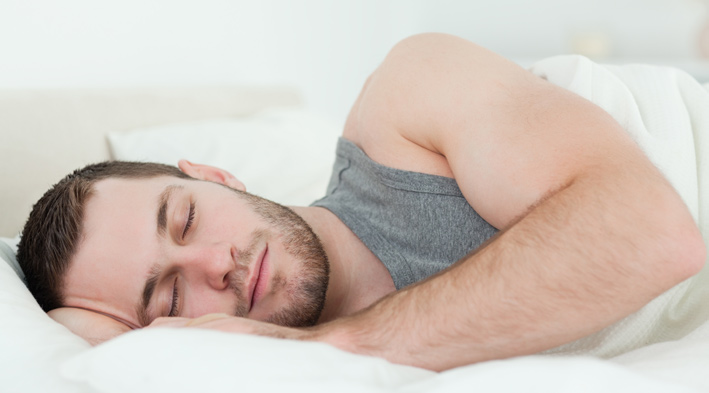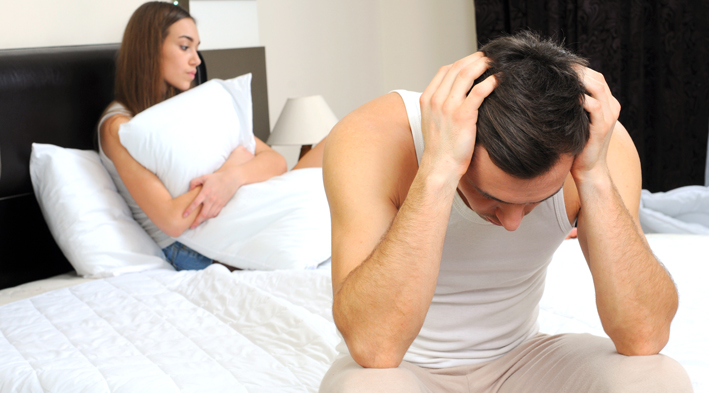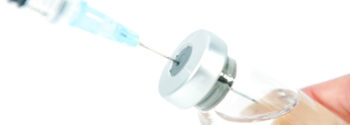
Misconceptions and false beliefs abound regarding masturbation have been connected to a variety of negative effects, including fatigue or tiredness, hair loss, and even blindness. However, there is no evidence to support such beliefs of any negative consequences of masturbation, and the dangers are minimal.
It might surprise you to know the opposite of that is true. Many studies have found that masturbation is good for your body and mind. Masturbation is a great way to release tension, improve your mood, and get rid of excess energy. Self-acceptance and bodily exploration can be practiced in a relaxed and secure environment.
Read on if you want to dispel the idea that masturbating makes you tired or causes hair loss, and learn about other common misunderstandings regarding the practice
Effects of Masturbation On The Brain
Even though scientific evidence shows that masturbation has no negative effects on health, many people nevertheless believe that it is dangerous. On the other hand, there may be some positive health effects of masturbation. Keep reading to find out how masturbation influences the mind:
Masturbating Releases Hormones
When you masturbate, your body releases a variety of hormones, both before and during the climax. Some examples of such hormones are:
Dopamine
Dopamine is one of the “happy hormones” linked to the brain’s reward circuitry.
Endorphins
Endorphins are released in the body in response to pain and can have calming and uplifting effects.
Oxytocin
This chemical messenger plays a key role in romantic and platonic relationships.
Testosterone
This hormone is released during sexual activity and has been found to boost energy and sexual desire. Additionally, the hormone is released in the context of sexual desires.
Prolactin
Prolactin is a hormone essential to lactation and affects your mental state and defense mechanisms.
Why Can Masturbation Make You Feel Tired?
Although there are clear advantages, some people do experience negative effects from masturbating. It’s possible that you don’t like the emotion, that it goes against your beliefs, or that you’re just not interested in it. That’s okay. It is entirely up to you whether or not you choose to masturbate.
Consider talking to a doctor or therapist if you find it difficult to masturbate and this difficulty is making you feel weak or tired, but the action itself can only make you feel tired if you do it in excess
Why Are There Different Responses to Masturbation?
It is entirely up to you and only you whether you masturbate. If you do, you can be sure it won’t hurt you physically. If you choose not to, there is no harm or foul done to you. Here are the main negative reactions to masturbation:
Negative Feelings Associated To Masturbation
To masturbate is a sin in the eyes of various faiths. Many people hold the view that people shouldn’t masturbate, and others consider the act to be sinful. Not to mention several of the disturbing myths about masturbation that cause anxiety.
Underlying Health Issues Not Related To Masturbation

In addition to societal and spiritual challenges, underlying medical issues may make masturbation challenging.
For instance, masturbating could be annoying if you have:
- Erection problems.
- Lowered libido.
- Dyspareunia; a painful vaginal penetration condition.
- Vulvar dryness.
- Post-orgasmic syndrome; is a little-known disorder that causes people with a penis to get sick after ejaculating.
Additionally, if you have had sexual trauma, masturbating could be uncomfortable.
What Is Considered Excessive Masturbation?
Excessive masturbation happens when:
- You feel a lot of distress as a result.
- You engage in many acts of masturbation each day to get away from stress or the realities of daily life.
- You rub abrasively and hurt yourself frequently.
- You spend so much time enjoying yourself that you scarcely have time for your friends or family.
- You fight the continual want to indulge yourself because you feel insatiable.
- You feel discomfort in your genitalia.
Possible Side-Effects Of Excessive Masturbation
Anything in excess can be dangerous and bad for your health. Excessive masturbation can lead to:
- Feeling tired.
- Feeling weak.
- Early ejaculation.
- Preventing you from having sex with your spouse.
- Damage to the penis.
- Vision alterations.
- Lower back discomfort.
- Testicular discomfort.
- Loss of hair.
Masturbation Myths

Many of us have heard the absolutely untrue statements that preteens frequently spread, such as the ones that masturbating can make you go blind or make your hands grow hair.
Due to that, you may feel guilty, anxious, ashamed, or depressed after masturbating if you think such things and then do it.
It’s absolutely acceptable to refrain from masturbating due to your personal views, however, speaking with a therapist may be able to help you deal with your guilt and allow you to masturbate without feeling anxious. The following are some myths about masturbation that you should stop worrying about:
Masturbation is Bad For Your Health
On the contrary, many medical professionals concur that masturbating may be beneficial to your health. It offers a number of health advantages, including increased concentration and rest. As your body releases endorphins—which are feel-good brain chemicals— it also aids in reducing stress and headaches.
Masturbation Causes Erectile Dysfunction
There is no evidence to suggest that masturbation can cause erectile dysfunction (ED). Therefore, a variety of physiological and psychological reasons, none of which involve masturbation, are what actually cause ED. Several reasons that may result in ED include:
- Difficulty with intimacy
- Anxiety or tension.
- Excessive drinking or smoking.
- Either having low or high blood pressure.
- A high cholesterol level.
- Having diabetes or being obese.
- Enduring a cardiac condition.
Masturbation Causes Psychological Problems
The American Psychological Association does not currently classify masturbation or sex addiction as mental health problems. Most medical practitioners, however, classify excessive masturbation as compulsive sexual behavior (CSB) or uncontrollable sexual activity.
Some individuals are particularly vulnerable to CSBs as a result of specific medical problems, including:
- Alzheimer’s condition.
- Bipolar illness.
- Pick’s illness.
- The Kleine-Levin condition.
Treatment of the underlying medical problem often lessens sexual compulsions and behaviors in people with these illnesses.
Masturbation Reduces Sperm Count
The sperm count is not decreased by masturbation. In otherwise healthy males, masturbation is not known to alter sperm count or fertility. There is a catch, though. If you have been told that your sperm count is low, it is advised that you wait two to three days before ejaculating in order to get the most sperm possible.
Boston Medical Group and the specialists affiliated with it offer treatments for various conditions affecting men’s health. If you have any questions about how masturbation makes you weaker or does masturbation make you tired? The medical professionals at BMG are on the lookout for these common myths and the possible influences those areas may have on the patient’s health.
Call us today or make an online appointment so we can enhance your sexual lifestyle!

